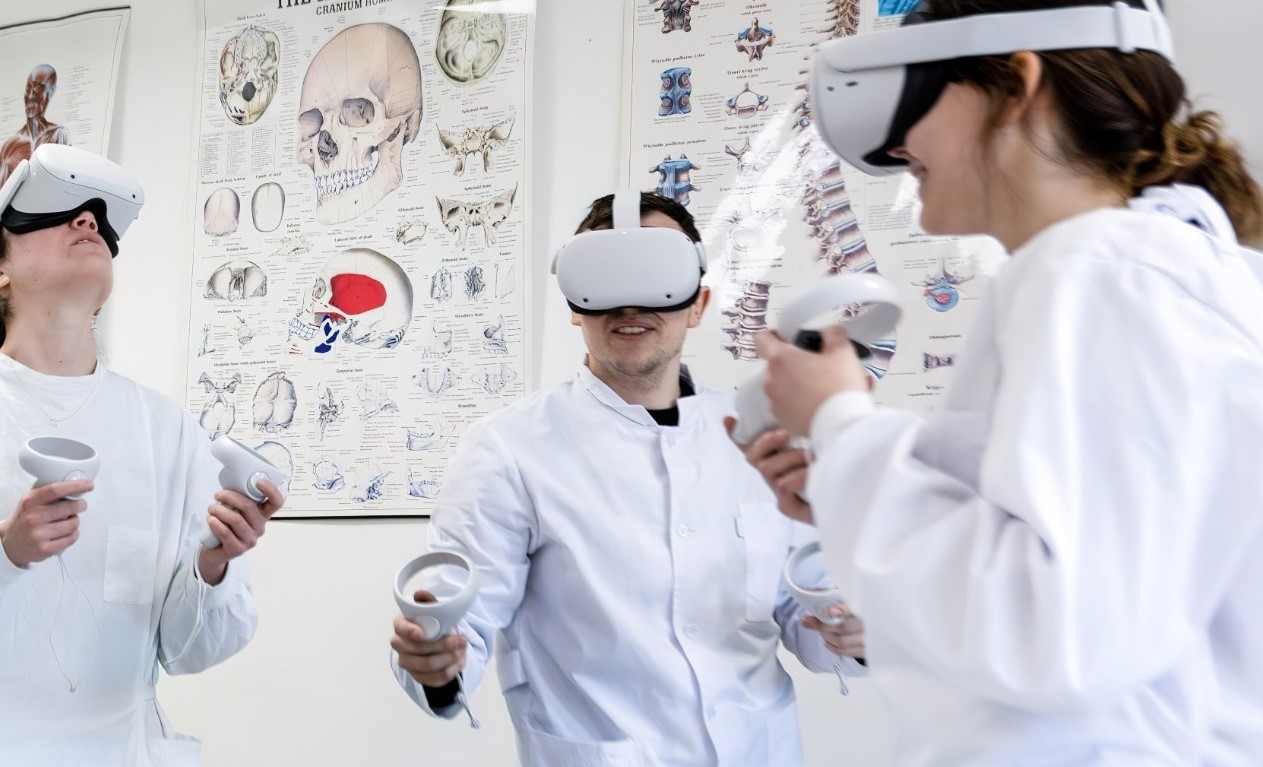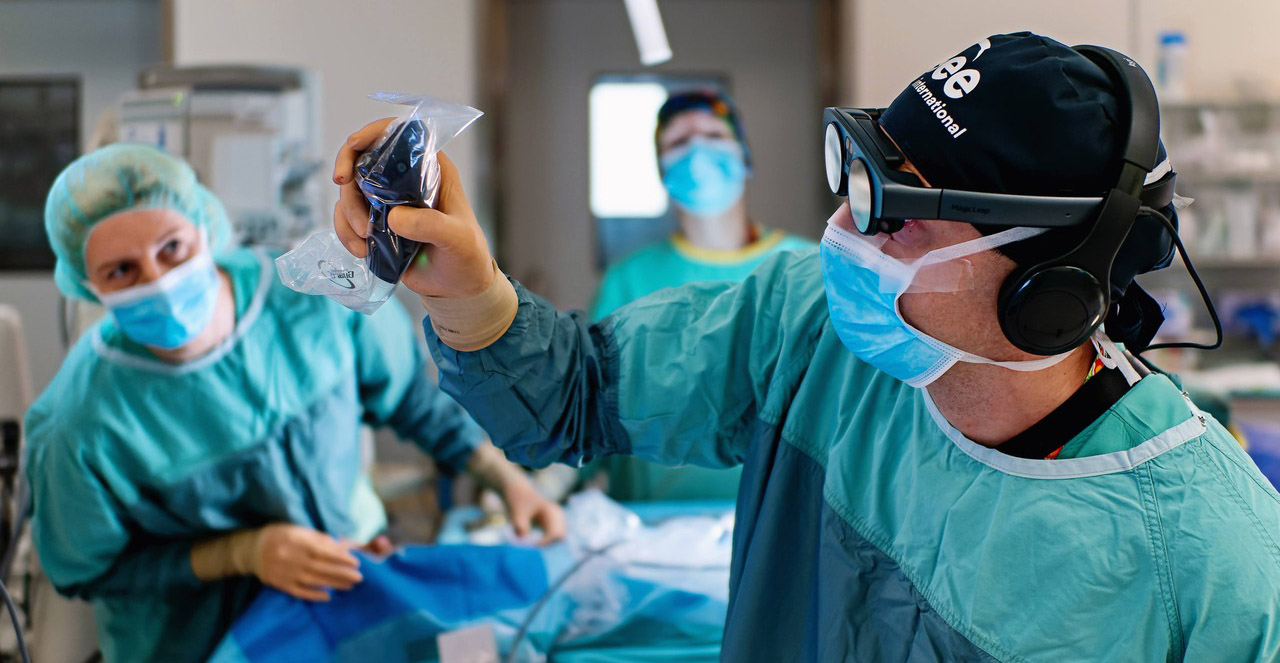
At the forefront of integrating cutting-edge technology with medical training, University Hospital Bonn (UKB) is setting a new standard in healthcare education and patient care. This renowned German medical institution, with its extensive network of clinics and institutes, has embarked on an ambitious journey to harness the power of Virtual Reality (VR) through NVIDIA CloudXR, transforming the landscape of medical training and surgical preparation.
Read more at Nvidia.com >
A Pioneering Partnership
In collaboration with Medicalholodeck, UKB has adopted NVIDIA CloudXR and A40 GPUs to create immersive virtual environments for training surgeons and medical students. This innovative approach allows users to engage with high-fidelity, 3D models of complex medical images, facilitating a deeper understanding of human anatomy and surgical procedures.

The Catalyst for Change
Driven by the need for continuous advancement in surgical training, Dr. Jan Arensmeyer and Dr. Philipp Feodorovici turned to extended reality (XR). The discovery of real-time image reconstruction using Medicalholodeck, streamed seamlessly with NVIDIA CloudXR, marked the beginning of a new era in medical education at UKB. This technology enables the detailed visualization of intricate injuries and anatomical structures, significantly enhancing the training experience for surgeons.
Elevating Surgical Precision
Thoracic surgery, known for its complexity, requires exceptional precision and skill. The VR system implemented at UKB allows surgeons to plan and rehearse these demanding procedures in a 3D virtual space, offering a clarity and depth of understanding that traditional 2D images cannot provide. This leap in technological application aids surgeons in achieving greater accuracy and efficiency in their operations.
Streamlining Hardware Needs
One of the notable advantages of this VR initiative is the reduction in necessary hardware, making advanced training more accessible and cost-effective. Surgeons and students need only a VR headset and a reliable internet connection to step into a detailed virtual reconstruction of patient-specific medical scenarios.

A Collaborative Approach to Surgery
The integration of VR into UKB's surgery lectures has opened up new avenues for collaborative learning and pre-operative planning. Medical professionals can now interact with and manipulate 3D reconstructions of real patient data, fostering a more interactive and engaging learning environment. This method not only prepares medical personnel for the technical aspects of surgery but also enhances their spatial understanding and decision-making abilities.
The Impact of Spatial Computing
By utilizing NVIDIA A40 GPUs, UKB can handle the substantial computational demands of real-time data reconstruction, ensuring that surgeons and students experience no latency during their virtual training sessions. This high level of performance is crucial for maintaining the immersive quality of the training, allowing participants to fully engage with the virtual environment as if they were in an actual operating room.
Enthusiastic Reception and Future Prospects
Feedback from students participating in thoracic surgery lectures has been overwhelmingly positive, with nearly all respondents appreciating the educational value and enjoyment derived from the VR training. This enthusiastic reception underscores the potential of VR to revolutionize medical education, making complex surgical concepts more accessible and retainable.
UKB's foray into VR-assisted medical training has not only enhanced the educational experience for medical students but also paved the way for more innovative uses of technology in healthcare. With ongoing support from the state of North Rhine-Westphalia and collaborations with industry leaders like Medicalholodeck and NVIDIA, UKB continues to explore the boundaries of virtual and mixed reality applications in medicine, aiming to improve surgical outcomes and patient care through advanced technological integration.
For more information, contact info@medicalholodeck.com November 2023


